Our History
Phillip J. Bowman, Ph.D., is Professor Emeritus in the Marsal Family School of Education. In 2024, he retired from his position as a Professor in Higher Education at the University of Michigan. Dr. Bowman directed the DIversity Research and Policy Program (DRPP) in the Center for the Study of Higher and Postsecondary Education (CSHPE). DRPP was launched in 2008 with funding from the National Institutes of Health while Bowman was Founding Director of the National Center for Institutional Diversity (2006-2013), a national think-tank for bridging innovative scholarship with policy-relevant social change. From 2013 until 2024,, the DRPP’ priorities continued to evolve through strategic alliances between the Marsal Family School of Education, Institute for Social Research and other stakeholders at UM and beyond.
The DRPP is the forerunner of the Personal Assets and System Strengths (PASS) Program. The acronym PASS represents continues our emphasis on strengths-based approaches to individual, collective, and system/institutional strengths that contribute to personal and societal well-being. This page honors Dr. Bowman’s contributions.
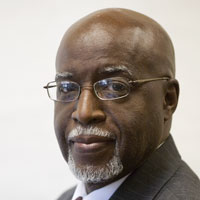
As a theoretical and applied social psychologist, Bowman’s scholarship focused on higher education, racial/ethnic diversity, and related public policy issues (e.g. workforce inequalities, urban family poverty, health disparities and social justice); As DRPP’’s Director, he was interested in multilevel strengths-based intervention strategies to reduce inequalities, disparities and opportunity gaps. Professor Bowman taught several related courses including Race, Ethnicity and Gender in Higher Education; Diversity, Merit and Higher Education; and Strengths-Based STEM Pipeline Interventions.
Dr. Bowman received his Ph.D. in Social Psychology from the University of Michigan where he began his professional career as an Assistant Research Scientist at the Institute for Social Research and Assistant Professor in Psychology and Afroamerican and African Studies. Before returning to UM in 2006, he held positions at the University of Illinois at Chicago, Northwestern University, and the University of Illinois at Urbana-Champaign. He has been a Rockefeller and Senior Ford Postdoctoral Fellow and serves as a national and international consultant on policy-relevant diversity issues. His research has been supported by the Robert Wood Johnson Foundation, Spencer Foundation, state agencies, and several federal agencies, including the National Institutes of Health and the National Science Foundation.
Received PhD from UM
As a CSHPE professor, Dr. Bowman worked with several PhD students whose dissertations were related to DRPP priorities.
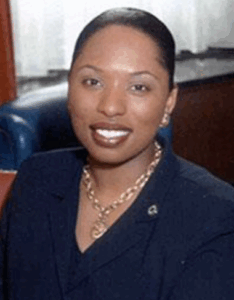
Dr. TaShara C. Bailey’s professional career is dedicated to increasing institutional diversity among administrators, faculty, staff, and students. She specializes in program evaluation and assessment of diversity initiatives spearheaded by those in the fields of science, technology, engineering, and mathematics including business (STEM-B). During her tenure as a scholar-practitioner in higher education, Bailey has championed organizational change in areas of diversity and inclusion by focusing on broadening STEM-B participation of historically under-represented groups. She is the Director of Old Dominion University (ODU) First Star Academy, effective July 25, 2022. TaShara joins ODU from the University of Maryland, Baltimore where she served as Director of STEM Curriculum and Director of Programs for the CURE Scholars Program. Developing STEM curricula and related materials for student success, analyzing, and modifying instructional activities and strategies, organizing, and coordinating activities for middle and high school scholars, and collecting, managing, and interpreting data for reporting purposes were among the responsibilities of the position. She pursued graduate studies at the University of Michigan in Ann Arbor, where she earned a PhD in higher education with a concentration in organizational behavior and management as well as a master’s degree in education studies with elementary teacher certification. Bailey earned a BS degree, cum laude, in agricultural and biosystems engineering with waste management certification from North Carolina Agricultural and Technical State University.
Organizational Support, Satisfaction, and STEM Research Career Plans in Pipeline Interventions: A Strengths-Based Approach among Underrepresented Students.
This policy-relevant study provides new insight into the social organization of pipeline interventions for underrepresented (UR) students and how strong organizational support can help to explain successful Science, Technology, Engineering, and Mathematics (STEM) outcomes. Guided by the strengths-based role stress and adaptation literature, the study focused on two major Research Aims: (1) to develop reliable and valid measures of strong formal and informal organizational support that are useful for research on UR students in pipeline interventions; and (2) to explore how strong formal and informal organizational support measures may help to explain overall program satisfaction and successful STEM research career plans among UR students. To investigate several related questions, multivariate analyses were conducted on panel survey data from UR students in a strong pipeline program with multiple program components and UR students in other pipeline interventions with fewer formal program components. With respect to the Research Aim 1, factor analyses clearly supported the reliability and validity of both formal and informal organizational support scales. This NIH-NIGMS supported study revealed that UR students in a nationally recognized Summer Research Opportunity Program designed with multiple components had higher scores on the strong formal organizational support scale items. Moreover, UR students with higher formal organizational support also had significantly higher informal support from program peers than from either faculty mentors or program staff sources. Overall, findings on Research Aim 2 were less clear as STEM major emerged as the strongest predictor of STEM research career plans. However, there were: (1) a clear relationship between strong formal organizational support and program satisfaction, and (2) a significant but modest relationship between program satisfaction and STEM research career plans. Racial/ethnic and gender comparisons revealed some interesting directions for future policy-relevant research and practice to broaden participation in STEM research careers. The relevance of study findings was also discussed with an emphasis on refining a strengths-based model of successful STEM outcomes, guiding future research as well as implications for program practice and policy.

Victoria Bigelow, PhD, is the evaluation coordinator for the Center for Education Design, Evaluation, and Research (CEDER) in the U-M School of Education. At CEDER, Dr. Bigelow provides evaluation plans to faculty and community partners seeking funding from federal, state, community, and private sources. She oversees a team of full and part-time staff, including professional evaluators and students, who work on a large portfolio of projects of various sizes, scopes, and types of partnerships. She teaches a seminar for graduate-level evaluation interns in the School of Education. Dr. Bigelow earned her doctoral degree from the U-M’s Center for the Study of Higher and Postsecondary Education and has worked in the field of evaluation for over a decade. She is a member of the American Evaluation Association and the Michigan Association for Evaluation, where she serves on the board of directors. Dr. Bigelow is a graduate of the PhD program at the University of Michigan School of Education’s Center for the Study of Higher and Post Secondary Education. Dr. Bowman was a member of her doctoral committee. Prior to her work in CEDER, Dr. Bigelow was the Coordinator for Certification Plus Master’s Program and Assistant Director of the Master in the Art of Teaching Program at Marygrove College, where she was also adjunct faculty in music and education. Dr. Bigelow also holds an advanced degree in music and serves as the in-kind arts coordinator for Flint Community Schools.
Urban Education Reform: A Qualitative Study of Change in Selected District and Public Charter High Schools
This dissertation examines how eight urban high schools responded to mandates to raise graduation requirements in mathematics. The change process was complicated by challenges such as the conditions of poverty, lack of adequate financial support for schools, and large numbers of students who come to high school with inadequate preparation in mathematics. Using a qualitative multiple-case study approach, the dissertation examined and compared patterns of change in four public charter schools and four district-accountable high schools. The schools used a range of school reform models such as early college, schools within schools, and schools with curricula linked to career themes. Data was collected from interviews with teachers, administrators in eight schools and with students, adult mentors, and program directors in four schools. Additional information sources included document analysis and observations. The study used a three-level approach to analysis: differences in organizational adaptation in public charter schools compared to district-accountable schools; schools’ adaptation of the mathematics curriculum to meet new requirements; and social support processes that helped motivate students. The comparison reveals that: 1) the charter schools were free from centralized district governance, but school-level adaptivity could be constrained by other management structures exerting top-down control; 2) mandates for college-preparatory standards posed capacity-building challenges for all eight high schools because most of their students were prospective first-generation college students without basic math skills; and 3) the charter schools had greater flexibility to adapt the curriculum locally than the district-accountable schools, but only two of these schools took advantage of this freedom. Although the district-accountable schools were constrained in their ability to adapt the mathematics curriculum locally, they were able to build capacity to provide social support interventions for students through partnerships with a non-profit organization. Student interview data indicated that these interventions motivated them toward higher achievement and college aspirations. Three of the charter schools had also formed partnerships to provide interventions. However, as there were no interviews with students or parents, the evidence supporting positive outcomes was indirect.

Julio Cardona, PhD is a Diversity, Equity, and Inclusion Lead at General Motors. In this role, Julio influences and drives DEI action plans and global strategies focused on increasing diverse representation and retention by driving adoption of equitable and inclusive norms. In his career that spans over 20 years, Julio has been recognized nationally for efforts to foster an inclusive organizational climate and culture utilizing data-driven solutions. Initiatives he has led with award-winning teams have been featured in the New York Times, Wall Street Journal, Inc. Magazine, The New Yorker, and the National Public Radio. Julio was recently awarded Top DEI Global Champion by the National Diversity Council. Julio holds a Ph.D. in Higher Education from the University of Michigan, Ann Arbor, a Master’s degree in Education from Stanford University, and a Bachelor’s degree in Humanities and Communications from California State University, Monterey Bay.
Determined to Succeed: Motivation Towards Doctoral Degree Completion
High rates of student attrition (upwards to 40-50% in certain academic disciplines) continue to hinder doctoral education. In response to this issue, this study investigated doctoral student motivation by identifying intrinsic and extrinsic factors that affect students’ motivation towards doctoral degree completion. The analytic sample was comprised of 36 doctoral students in four Social Science academic disciplines at one institution. The data were analyzed using a multiple case study method, and the psychological theory of self-determination was utilized to understand the role of motivation in students’ progress towards degree completion. The participants in this study reported various motivational factors relevant to self-determination theory (intrinsic, extrinsic, and autonomous motivation, and psychological need for competence, relatedness, and autonomy). Students explained that intrinsic, extrinsic, and autonomous motivation was important in developing and sustaining their motivation towards degree completion. Students who received support for the needs of autonomy, relatedness, and competency seem to develop motivation to reprioritize their values and articulate their needs and approach personal growth and change with a self-motivated mindset. The study illustrated how students’ personal and academic needs, the academic environment, and career and academic support influenced their motivation to complete the doctoral degree. For some students, their motivation was challenged by the nature of doctoral work, particularly the unstructured process of completing a dissertation. Other students found increasingly difficult challenges in their motivation towards degree completion that included lack of funding, support, and potential employment after graduation. Additionally, students had a variety of positive and negative experiences within their respective doctoral programs that shaped their motivation towards degree completion. Factors that varied across the four disciplines included: academic and personal support, financial factors, student engagement, and doctoral cohort support each of which affected students’ motivation. Implications for practice include recommendations for an infrastructure of departmental and institutional support to assist doctoral students with their academic and personal needs, as well as the development of dissertation support groups utilizing cognitive restructuring and stress management training. Implications for research include a call for studies to examine the complementary, or synergistic, roles of intrinsic motivation for growth and adaptation of doctoral students.

Gloryvee Fonseca-Bolorin recently completed a Ph.D. at the Center for the Study of Higher and Postsecondary Education, University of Michigan. Gloryvee drew upon longitudinal survey data funded by National Science Foundation and administered by The Center for Black Youth in Context to explore the social psychological experiences of Black and Latino students’ within predominantly White institutions. Building upon strength-based frameworks, her dissertation investigated how racial ethnic identity along with perceptions of the campus racial climate influenced students’ sense of belonging and college persistence. Specifically, Gloryvee’s project explored whether students’ beliefs and attitudes about their racial ethnic group may function as a moderator or protective factor in the face of racial ethnic discrimination and stigma within predominantly White educational contexts. At the University of Michigan’s Center for the Education of Women (CEW+), Gloryvee directs the Academic Coaching Program tailored for student caregivers and coordinates the Women of Color in the Academy Project, a network focused on addressing the challenges and issues uniquely faced by faculty women of color. Prior work experience includes the National Center for Institutional Diversity, Center for the Study of Black Youth in Context, and Rackham Graduate School.
Strength-based Framework of College Student Persistence: The Relationships between Campus Racial Climate, Racial Ethnic Identity, Sense of Belonging and Intentions to Persist among Black and Latinx Students Attending Predominantly White Institutions
In alignment with strengths-based role strain adaptation models (Bowman, 2013), my dissertation investigates how social psychological strengths that Black and Latinx students bring to predominantly White higher education environments influence their perceptions and behavior in college. Strength-based models (SBM) highlight the importance of considering an individual’s strengths in counseling interventions and cross-cultural research (Bowman, 2013; 2006). In contrast to widely used deficit frameworks, this study employs a strengths-based approach to understand Black and Latinx college student experiences by focusing on individual and group level strengths that facilitate student adaptation. Utilizing structural equation modeling, I examine how racial ethnic identity along with perceptions of the campus racial climate relate to students’ sense of belonging and intentions to persist. More specifically, I analyze longitudinal survey data from 588 Black and Latinx students in five predominantly white institutions to investigate the direct and indirect influences of campus racial climate (racial ethnic stigma) and three dimensions of racial ethnic identity (centrality, private regard and public regard) on students’ sense of belonging and intentions to persist one academic year later. In addition, this study examines whether dimensions of racial ethnic identity moderate the influence the campus racial climate (racial ethnic stigma) on sense of belonging and intentions to persist. Findings indicate that sense of belonging operated as a mediator and had a consistent and direct relationship to student’s intentions to persist in college. While contextual dimensions of the campus racial climate were important, interpersonal dimensions had a significant relationship to sense of belonging and intentions to persist. More specifically, perceptions of stigma consciousness was negatively associated with belonging and intentions to persist. Surprisingly, only public regard was related to sense of belonging and intentions to persist in college. Also, there were no moderating relationships found between those with different racial ethnic identity beliefs and attitudes and those with different perceptions of the campus racial climate on sense of belonging and intentions to persist. However, when Black and Latinx student were examined separately, perceptions of the classroom inferiorization and stigma consciousness and different beliefs about centrality, private and public regards were considered, the multiplicative effect exacerbated the negative relationship to belonging and intentions to persist. The strength-based model of college student persistence and related study findings have important implications for theory, research and practice. First, the strength-based conceptual model of college student persistence offers an alternative to the deficit lens used to understand Black and Latinx student experiences. Second, the findings have important implications for future research to further clarify the multiples social psychological dimensions of the campus and racial climate ethnic identity in order to understand how lived experiences influence stigmatized students’ persistence in college. Finally, the findings have policy relevance for informing strengths-based strategies that promote persistence among stigmatized student groups and specifically Black and Latinx students by reinforcing the cultural strengths that they bring to their experiences at predominantly White institutions.

Omari earned a B.S. in psychology from Howard University, a M.P.H. from The George Washington University, a M.A. and Ed.M. in Psychological Counseling from Teachers College Columbia University, and a M.S. in Psychology and a Ph.D. in Education and Psychology from the University of Michigan. His dissertation examined the relation between Black students’ social class identity and their psychological adjustment to predominantly White highly selective institutions. Omari also holds a certificate in French Language and Culture from the Université de Bourgogne (University of Burgundy) and participated in the Summer School on Black Europe in Amsterdam. He served as a program assistant for pipeline research programs for students from underrepresented/racially minoritized groups at both the University of Miami and the University of Michigan. In his role as an Assistant Director for Diversity, Equity, and Inclusion at Northwestern University, Omari developed and implemented initiatives around inclusion, equity, and diversity for faculty at all levels. Omari joined Poly Prep Country Day School in Brooklyn, NY in the summer of 2021 as the Director for Diversity, Equity, Inclusion, and Belonging and is responsible for creating, fostering, leading, and advocating for the school’s diversity, equity, inclusion, and social justice programs and policies.
Class Matters: Social Class Identity Profiles of Black Students and Implications for Psychological Adjustment to Predominantly White Institutions
Scholarly discourse and empirical analyses of social class impacts in higher education tend to conflate race and social class, suggesting that Black students’ outcomes can be largely explained by their higher proportions of economic and social disadvantage. This result of studies that do not consider the variation within class groups by race is the framing of Black students – explicitly or implicitly – as a monolithic group with common identities, preferences, experiences, and adjustment to higher education contexts. Drawing from social identity frameworks (i.e,, Social Identity Theory, Tajfel & Turner, 1986; and the Multidimensional Framework of Social Class Identity, Webb, 2014), the current dissertation explores how social class identity processes help explain individual variation in Black college students’ psychological adjustment to predominantly White institutions. Using data from the College Academic and Social Identities Study (CASIS) I examined a sample of Black college students (n=375) over their first year of college and 1) identified latent profiles based on patterns of Black college students’ social class centrality and social class affect (pride, shame, and guilt) upon matriculating into college (Time 1). I also investigated if individuals’ social class selfidentification was associated with membership in particular social class centrality and affect (pride, shame, guilt) profile groups in PWI contexts; 2) I examined how Black college students’ social class centrality and affect profiles were related to their Time 1 and Time 2 psychological adjustment outcomes; and 3) analyzed whether Black college students’ social class centrality and affect profiles moderated the associations between social class self-identification and psychological adjustment outcomes. Key findings show that Black college students vary in the extent to which they make meaning of the importance and emotions attached to their social class identity. There were significant differences by profile group in psychological adjustment outcomes. Profiles that xiii included students who reported high levels of negative affect (shame and guilt) reported lower levels of adaptive psychological adjustment. Social class centrality and affect profile that included students who reported high levels of social class pride reported more adaptive psychological adjustment to the PWI context. However, the relation between social class self-identification and psychological adjustment did not vary as a function of social class centrality and affect profile group.
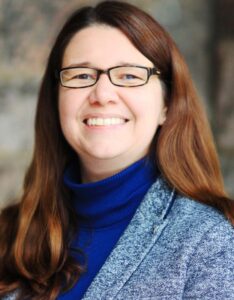
Kim Lijana, PhD, leads the University of Michigan’s Center for Educational Outreach. She is responsible for supporting and advancing U-Ms commitment to pre-college learners and under-served schools in the state of Michigan. Dr. Lijana is passionate about providing life-changing opportunities for students and has developed a strong track record for increasing post-secondary education access and success for low-income, first generation, and underrepresented students.
Understanding the College Application and Decision-making Process in Context: African American Students and their Families
This study explores the postsecondary decision-making processes for African American seniors in an urban public high school in Michigan. While there is considerable research on college choice processes, few qualitative studies have examined college application behavior in urban high schools that serve predominately low-income African American students. The main research question that guides this study is: How do high school seniors and their families engage in postsecondary planning and select a postsecondary pathway in an under-resourced school committed to college access? Using a case study design, the author closely followed twelve students (6 male and 6 female) in a class of 100 and the families of eight of the 12 throughout their senior year at an urban high school dedicated to encouraging all students to pursue postsecondary education. Students selected for the study were all academically eligible to attend some four-year colleges. A major finding was that students and families relied on trusted information sources when determining where to apply and enroll. Moreover, guaranteed financial-aid also influenced students to attend specific eligible institutions because they believe the funds were reliable. Where students applied and decided to attend college was shaped by higher education marketing and recruitment: college representative visits, on-site admissions decisions, college visits, and flyers by mail. Peers played a critical role in sharing information about specific institutions and providing encouragement, which influenced both where students applied and decided to attend. Overall, findings suggest that low-income urban high schools can create opportunity for African American students by developing a strong “application culture” and collaborating with colleges. Nevertheless, an application culture does not necessarily mean high-achieving students will attend institutions that are best suited to their academic goals or that all students will enroll. African American students and their families tend to perceive college to be the pathway to a career that can provide financial stability and happiness. However, interventions that promote their college-going may have unintended consequences, including dampening four-year college aspirations and redirecting many to two-year institutions. Intervention strategies that provide more opportunities for students’ families and peers to learn about college options could further promote college access.

Dr. Christopher J. Nellum is the Executive Director of The Education Trust–West, a nonprofit education equity organization focused on educational justice and closing achievement and opportunity gaps for students of color and students from lower-income communities from preschool through college. He has led successful advocacy efforts to ensure equity in the K-12 accountability system, create a statewide cradle-to-career data system, address food insecurity for college students, and ensure that every high school senior completes a financial aid application before they graduate. Nellum regularly provides commentary for media outlets, including PBS NewsHour, EdSource, The Wall Street Journal, and NBC News.
A Multi-Institutional Study of Black and Latina/o Community College Students' Transfer Intentions: A Theory of Planned Behavior Reconceptualization.
Community colleges currently enroll over one-third of all undergraduates and serve as the gateway to postsecondary education for increasing numbers of Americans in the 21st century, especially students of color. A significant portion of community college students aspire to transfer to a four-year college or university, but only 23% to 40% make this transition within six years of initial enrollment with disturbing racial/ethnic disparities. Existing studies offer sociological explanations for the persistent disparity in upward transfer rates between White community college students and lower rates for African American and Latino community college students. The present theory-driven study aims to better explicate the social psychological factors that motivate community college students interested in upward transfer. This study seeks to better understand whether the constructs central to the Theory of Planned Behavior (TPB) explain variation in African American and Latino students’ intentions to transfer from a community college to a four-year college or university. Structural equation modeling was used with a sample of 154 African American and 831 Latino community college students enrolled at 6 institutions across the United States to test and extend the theory of planned behavior. Additional questions assessed whether policy-relevant collegiate experiences moderate intentions to transfer. Study findings support the importance of racial/ethnic-specific patterns, with clear distinctions between TPB predictors of transfer intentions for African American and Latino students. For the Latino students, significant attitudes reflected underlying beliefs about the instrumentality of transfer; subjective norms reflected expectations of non-academic; and academic individuals; and control considerations included lack of academic capacity and financial constraints. The results also show that students who participated in developmental education courses or had a positive perception of transfer climate report differences in intentions to transfer. Future research should go beyond TPB concepts to better understand social psychological mechanisms that motivate transfer intentions for African American community college students. The theory-driven findings on Latino community college students have important policy-relevant implications for targeted interventions to improve and support intentions to transfer and for future research on upward transfer.

Gordon Palmer will be joining the Department of Urban Higher Education as a Bridge to Faculty Fellow this Fall. He received his Bachelor of Arts degree in International Studies and Religion from Baylor University, a Masters degree in Higher Education from Miami University (in Ohio), and is receiving his PhD in Higher education and Psychology from the University of Michigan. His current work is supported by a Ford Foundation and the Institute for Research on Women and Gender at the University of Michigan. His work is motivated by an effort to understand how Black people transform the places that they occupy into more just and compassionate places through meaning-making, cultural ideologies, compassionate relationships, and acts of justice. Gordon’s emerging program of research broadly focuses on 1) examining the sociopolitical development of Black urban residents—with a particular focus on Black women college and graduate students—through innovative critical qualitative placed-based methodologies and 2) examining how parents, mentors, and spirituality influence the well-being and persistence of Black peoples generally and Black university students specifically. He takes on this work as someone dedicated to ethical, rigorous, and reciprocal research practices aimed at transforming the extant higher education understanding of urban residing Black students in the US into one that is more emic and inclusive.
Making a place for justice: Spirituality and place-making in the sociopolitical development of Black emerging adult women
Emerging adulthood (ages 18-29) is a developmental period in which individuals explore their identities, achieve status markers (e.g., marriage), and become able to participate more fully in democracy (Arnett, 2000). There has been substantial exploration of emerging adulthood broadly, but relatively little attention has been paid to emerging adult aged Black women and the ways they navigate the world, their identities, and their sociopolitical development. This dissertation investigated the role of social identities (e.g., race and gender), cultural ideologies (i.e., religiosity/spirituality), and spatial context (i.e., cities and urban higher education institutions) in the SPD of Black emerging adult women (BEAW). Across three studies, I used conceptual frames linking SPD, urban place, religiosity/spirituality (SET- RS Urban; Mattis et al., 2019), Black placemaking, and Black feminist geography (Hunter et al., 2016; McKittrick, 2006) to address three intersecting questions. Study 1 used survey data to address the question: To what extent are religiosity/spirituality and urban place associated with SPD (measured by critical reflection, critical agency, and critical action) among BEAW? In Study 2, I used a qualitative approach and asked: How, if at all, does the religiosity/spirituality of BEAW influence their sociopolitical development? In Study 3, I used a qualitative approach informed by Black feminist epistemology to address the question: How do the ways that BEAW “make place” (i.e., experience, perceive, and imagine urban places—especially urban universities) inform their sociopolitical development? Taken as a whole, these three studies produced new understandings of the ways that urban places and identity engender sociopolitical reflection, efficacy, and action among BEAW. First, Study 1 demonstrated that the various manifestations of religiosity and spirituality are associated with different domains of SPD among BEAW. These findings offered a call to researchers to 1) more thoroughly investigate the dimensions of religiosity and spirituality through communally based measures, and 2) investigate broader denominational, ideological, and regional differences in the socialization of BEAW and how these relate to SPD. Study 2 highlighted that BEAW used religiosity/spirituality as a source of efficacy and motivation as they pursued social justice. Participants placed their actions in a larger and narrative of Divinely-guided justice. This enabled them to undertake the work of justice as a moral good and a as an effort tied to divine purpose. Finally, participants saw themselves as a part of a spiritual sisterhood which allowed them to collectively reflect and engage in critical actions. In Study 3, participant narratives highlight that BEAW critically reflect on and navigate spatial manifestations of oppression in their cities and campuses while at the same time endeavoring to ameliorate these ills through Black placemaking. Further, BEAW not only resist oppressions in these places. They actively cultivate joy and celebrate their everyday existence as Black women.
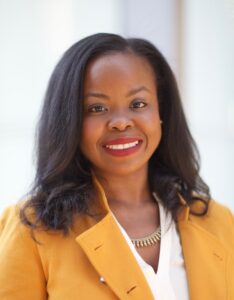
Dr. Kelly Slay is an Assistant professor of Higher Education and Public Policy in the Department of Leadership, Policy, and Organizations at Vanderbilt University’s Peabody College. Her research uses qualitative methodologies and critical policy analyses to examine how public policies and organizational structures shape access and success of students from minoritized backgrounds. Dr. Slay’s work broadly explores diversity and equity issues in higher education and is primarily focused in two areas: factors shaping Black students’ college choice, completion, and career trajectories and the use and implications of enrollment management policies (admissions, recruitment and financial aid) aimed at improving campus diversity. Two of Dr. Slay’s current projects explore the relationship between enrollment management practices in selective contexts and the college choice decisions and transition experiences of Black students and students from low-income backgrounds. She is also developing a project on the effect that COVID-19 has had on Black high school students’ college-going that was recently funded by the Spencer Foundation. She received a Ph.D. in higher education with a concentration in public policy from the Center for the Study of Higher and Postsecondary Education at the University of Michigan.
Choosing Colleges in a Post-Affirmative Action Era: Black Students' Perceptions of Institutional Diversity and Campus Climate
Highly selective public institutions affected by affirmative action bans have struggled to enroll Black students despite myriad attempts at alternative strategies. Bans likely shift university recruitment practices and shape both campus climate and portrayals of institutional commitment to diversity. Increasingly public racial incidents on college campuses suggest the possibility that Black students’ underrepresentation in selective post-affirmative action contexts may also be a function of choice—Black students’ decision to opt out of institutions they do not perceive to be diverse or inclusive. I conducted an in-depth case study focusing on practices used to encourage Black student enrollment as well as Black students’ appraisals of institutional commitment to diversity and racial climate—both underexplored—as a way to understand the enrollment decisions of Black students admitted to the University of Michigan, a battleground for affirmative action. Guided by an interdisciplinary framework that incorporates models of college choice and social identity theories, including social identity threat and racial identity and concentrating on the yield stage of the admissions cycle, I interviewed 35 Black students (15 enrolled at U-M; 20 enrolled elsewhere) and 16 university professionals across four departments engaged in yield recruitment. I also observed 23 hours of yield events. From the institutional perspective, I found that enrollment professionals were engaged in impression management—efforts to shape admitted Black students’ positive impressions of the university, particularly with respect to diversity and climate. Targeted yield recruitment events and activities were one set of tactics to manage Black students’ impressions. The discourse used in those events represented another set of tactics. Perhaps signaling compliance with the state’s affirmative action ban and awareness of the hostile climate for race-conscious policy, “diversity” was referred to broadly and communicated differently depending on the racial/ethnic identity of the enrollment professional as well as the demographic make-up of the student audience. My findings from the student perspective highlight how Black students’ perceptions of key race and diversity cues from the campus context they encountered during their recruitment experiences were significant in shaping their appraisals of the University of Michigan. The majority of participants expressed concern about the small size of the Black undergraduate population and perceived some level of potential threat (e.g., discrimination and racism) associated with their racial identity. However, among the 20 non-enrollees, only in a few instances were their impressions about diversity or racial climate the deciding factor in their decision to decline admission from the University of Michigan. Among the sample of enrollees, a large portion acknowledged their apprehensions about student racial diversity but still opted to enroll, citing their intention to leverage Black student organizations and cultivate community with same-race peers in order to mitigate potential threats and successfully navigate the stressful campus environment as a Black student. Findings have theoretical implications for understanding the complex interplay between racial identity and consciousness of institutional barriers in college choice. Findings also have implications for enrollment management practices and efforts to increase the representation of Black students in selective, post-affirmative action contexts and in predominantly white institutions, broadly. By highlighting the recruitment activities undertaken to yield Black students and the individual perspectives of Black admitted students, the study also contributes to a small body of literature on recruitment in higher education and deepens our understanding of contemporary sociopolitical issues affecting Black students’ college choice.
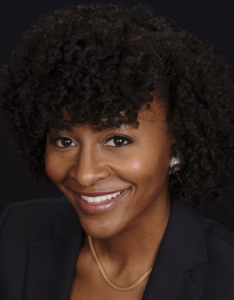
Dr. Krystal L. Williams is an Assistant Professor of Higher Education in the Educational Leadership, Policy and Technology Studies Department of The University of Alabama College of Education. Her research explores the use of public policies to promote college success for underrepresented students, with an emphasis on the interplay between policy initiatives and students’ various psychosocial factors. Recently, her work has focused on these issues as they relate to (1) broadening participation in science, technology, engineering and mathematics for underrepresented groups, and (2) reducing students’ economic and academic strains in college. Prior to joining The University of Alabama, Dr. Williams was a Senior Research Associate at the United Negro College Fund Frederick D. Patterson Research Institute (UNCF FDPRI). She currently serves as a UNCF FDPRI Senior Research Fellow where she provides expertise to help shape policy-relevant research concerning Black education issues within K-12 and higher education. In addition, Dr. Williams was a former American Educational Research Association (AERA) Postdoctoral Fellow at Educational Testing Service. She attended the University of Michigan where she completed her doctoral studies in Higher Education and Public Policy in the Center for the Study of Higher and Postsecondary Education. She also attended Clark Atlanta University where she earned a BS and MS in mathematics and graduated valedictorian.
Financial Impediments, Academic Challenges and Pipeline Intervention Efficacy: A Role Strain and Adaptation Approach to Successful STEM Outcomes for Underrepresented Students.
A growing number of studies highlight how exemplary pipeline interventions can promote college and career success in science, technology, engineering, and mathematics (STEM). However, it is also important to understand how the challenges and strengths that underrepresented students bring to intervention settings can influence their successful STEM outcomes. Guided by role strain and adaptation theory, this study seeks to better explain how intervention participation combines with other pivotal factors to influence students’ plans to pursue research careers in STEM fields. This theory-driven study makes unique contributions to the higher education pipeline intervention literature by further clarifying social psychological mechanisms through which financial and academic challenges impede successful STEM outcomes among underrepresented students within intervention settings. Analyses of longitudinal survey data from 376 underrepresented students who applied to an exemplary Summer Research Opportunity Program at 12 major research universities in the Midwest provided support for several hypotheses. Multivariate analyses found that STEM research career plans appear to be enhanced by intervention participation, but impeded by financial and academic challenges (both objective barriers and subjective threats). Study findings also suggest that personal resiliency, a measure of adaptive cultural strength, can also promote successful STEM outcomes. Study findings support the importance of students’ role strains and strengths in better understanding STEM-related intervention outcomes for underrepresented students. The theory-driven findings can help program administrators and policy-makers better determine not only if, but how, higher education pipeline interventions promote successful STEM outcomes for underserved groups.